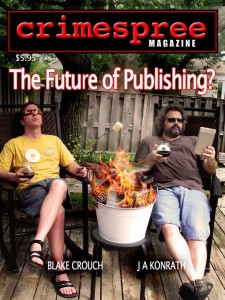 I was just looking at a website designed to sell gear to freelancers, offering personalized service at a better price than with larger resellers. The site’s copy included, “We will connect you with the latest technology”.
I was just looking at a website designed to sell gear to freelancers, offering personalized service at a better price than with larger resellers. The site’s copy included, “We will connect you with the latest technology”.
But the site design was horribly out of date by about ten years. My first impression was definitely not good–how could a company offer to sell me “the latest technology” when the site itself didn’t keep up with that concept?
As it turns out, after a few minutes of exploring I discovered that the site had been last updated a decade ago, but was still haunting the Internet with its promises. And as far as being inactive goes, it’s probably a good thing–I shudder to think what would be happening to that business right now if it were a going concern.
I hate to admit this, but seeing that made me click over to my own resume page to give a critical once-over to it first-impressionwise. And naturally I found a few faults in my own presentation. Faults that will take a small bit of time to correct and update, but faults nonetheless.
The old wheeze is true–you never get a second chance to make a first impression. Sometimes making one tweak is enough to steer someone away from the wrong idea at first glance.
In the case of the site I found, simply not making the claim to hook up buyers with “the latest technology” and finding a more effective sales pitch would have gone over a lot better. Sure, that’s all moot because the site seems as dead as the Dodo. But it’s a valid point, regardless. Can you tweak your own presentation by a few sentences and make it more effective? In my own case, definitely.
Joe Wallace is an audio junkie who collects rare and weird vinyl records, vintage analog synthesizers, and likes recording when he’s not pounding the freelance pavement. His vinyl blog, Turntabling.net, is a repository for all sorts of weirdness and rare goodness on vinyl.



 I’m curious…do any members of the Freelance-Zone.com community have experience using Elance.com to get jobs? If so, how did it go for you as a freelancer?
I’m curious…do any members of the Freelance-Zone.com community have experience using Elance.com to get jobs? If so, how did it go for you as a freelancer?
 Two weeks ago, I talked about the revolution in the book publishing industry. No big secret, right? Everybody knows that we are in the midst of a major shift from print to digital in the publishing industry. And everybody is speculating about what that means for the “industry” – from the big publishing houses to indie publishers to agents to best-selling authors (who are now passing on six-figure advances because they don’t want to give up their digital rights!) to self-published authors (who would probably gladly give up their digital rights for a six-figure advance!).
Two weeks ago, I talked about the revolution in the book publishing industry. No big secret, right? Everybody knows that we are in the midst of a major shift from print to digital in the publishing industry. And everybody is speculating about what that means for the “industry” – from the big publishing houses to indie publishers to agents to best-selling authors (who are now passing on six-figure advances because they don’t want to give up their digital rights!) to self-published authors (who would probably gladly give up their digital rights for a six-figure advance!).